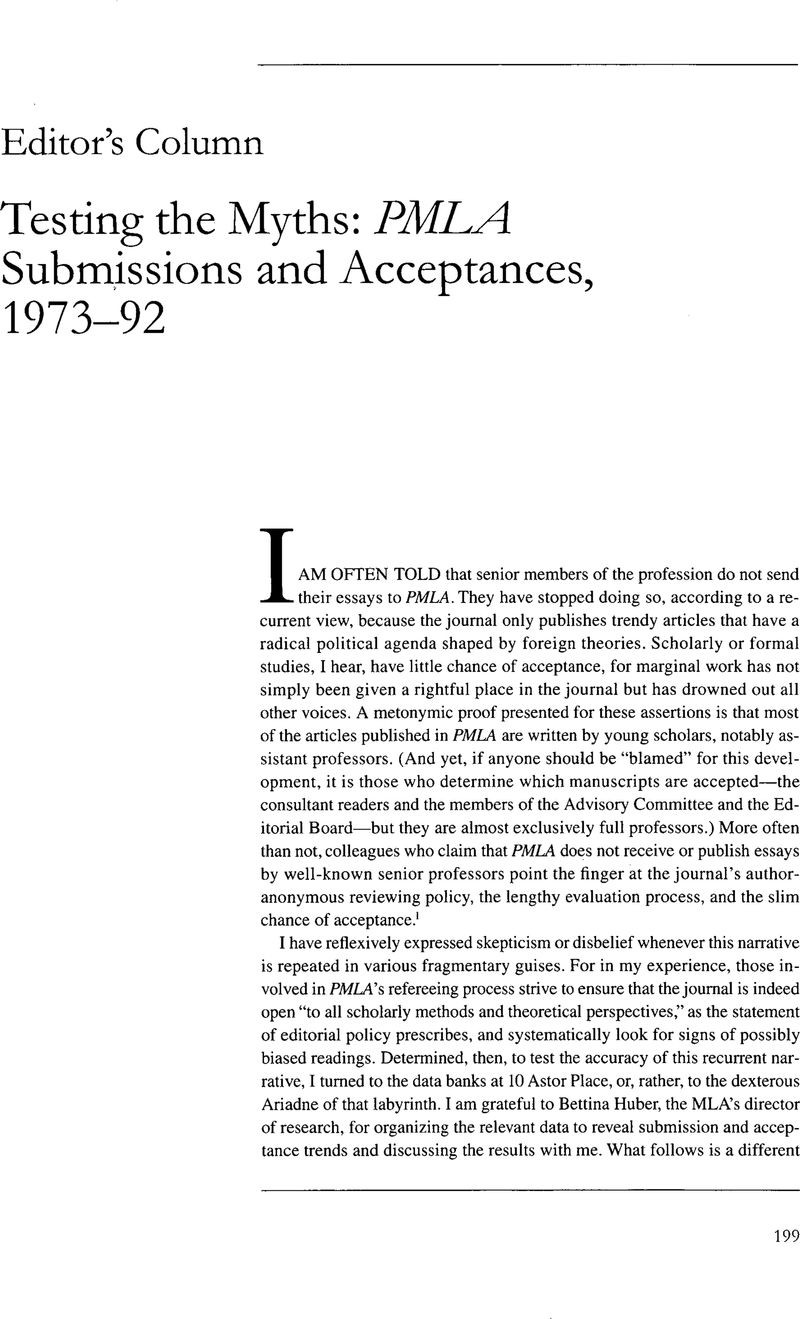Article contents
Editor's Column: Testing the Myths: PMLA Submissions and Acceptances, 1973-92
Published online by Cambridge University Press: 23 October 2020
Abstract

- Type
- Editorial
- Information
- Copyright
- Copyright © Modern Language Association of America, 1996
References
Notes
1 These views were expressed by some of the Parker Prize winners I cited in my October 1995 column. The notion that PMLA favors young, untenured, little-known scholars at unprestigious institutions was mentioned both by academics who are critical of certain trends in contemporary literary studies and by those who advocate, or consider themselves beneficiaries of, author-anonymous reviewing. Of course, not all MLA constituencies agree with these views. Some believe that the work of scholars of color is not acceptable to—and thus not accepted by—PMLA's referees because it does not traffic in what the critics perceive to be the dominant theoretical and literary discourse. In a recent meeting, some scholars of color criticized author-anonymous reviewing, but for reasons different from those I have cited. As one participant put it, “Author-anonymous reviewing represents equal opportunity, but we need a process that embodies the principles of affirmative action.” Although I do not discuss those concerns in this column, which focuses on rank, they need to be addressed and will be in a future column.
2 We did not consider independent scholars, instructors, and lecturers because the numbers of essays they submitted are small.
3 These figures represent the number of items in the MLA Directory of Periodicals, which encompasses journals and monographic series that fall within the subject scope of the MLA International Bibliography, including language, literature, linguistics, and folklore. This directory is not exhaustive, but its contents are relevant because scholars use it to find outlets for publication.
4 For an expression of this view, see the October 1995 Editor's Column (984-85).
5 Following are the special topics published during the period of the data, with the years when they were announced: 1987—African and African American Literature, The Politics of Critical Language, Canons; 1988—Cinema, Theory of Literary History, Performance; 1990—Literature and the Idea of Europe. With the exception of Canons, which never came to fruition, these special topics appeared between January 1990 and January 1993.
- 1
- Cited by




